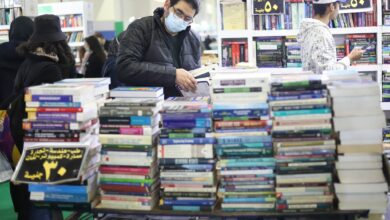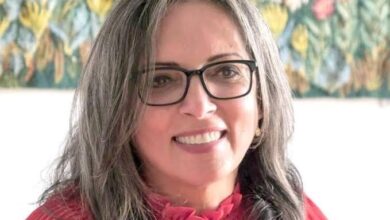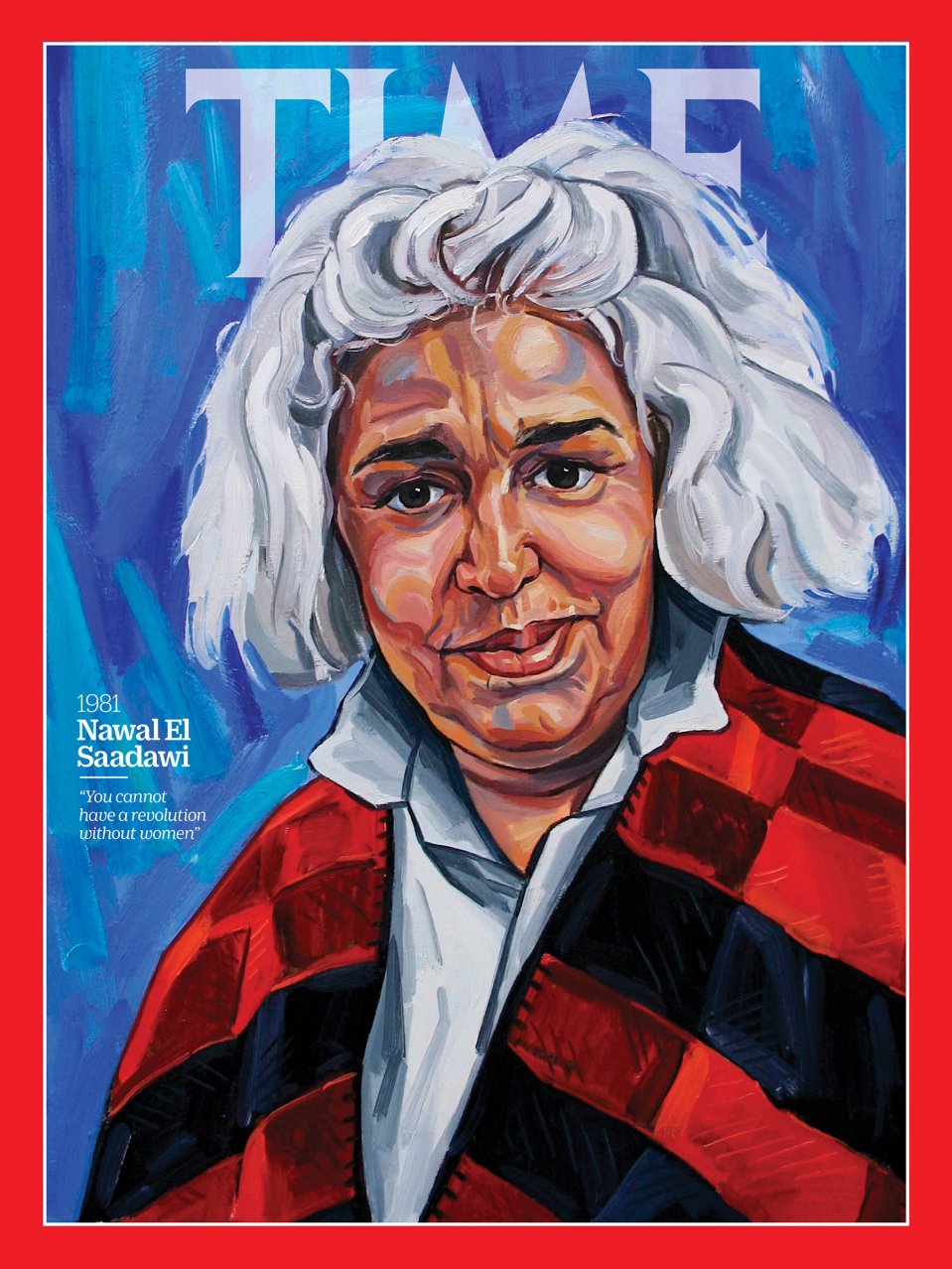Rasheed el-Enany is a professor of modern Arabic literature at the UK’s prestigious University of Exeter. The author of several books, including a highly acclaimed biography of Naguib Mahfouz, el-Enany delivered the Annual Mahfouz Memorial Lecture–held last week at the American University in Cairo–as part of the Naguib Mahfouz Medal for Literature award ceremony, won this year by Syrian writer Khalil Sweileh.
El-Enany spoke with Al-Masry Al-Youm about the state of contemporary Arabic literature, both in the Arab region and as translated works for foreign readers.
Al-Masry Al-Youm: What would you say about the perceived status of Arabic literature in Europe, and, more specifically, in the UK?
Rasheed el-Enany: I think the status of translated Arabic literature is better than it’s ever been. Interest in Arabic literature has increased significantly in the last few decades and the translation movement from Arabic into English and other major European languages has improved significantly.
In the old days, 25 or 30 years ago, novels translated from Arabic were few and far between and were printed only by academic publishers with small circulations, so the readership was mainly specialists and students of literature. But now, and particularly since the awarding of the Nobel Prize to Naguib Mahfouz, things have changed.
It’s not only the winning of the Nobel Prize, however. It’s also the fact that the Middle East, with its multitude of problems, is generating much international interest … It’s ironic that something like terrorism and Islamophobia are good in terms of generating interest in the Arab world, including literature and translation, along with the academic study of Arabic language, literature and history.
For instance, student recruitment to Arabic and Islamic studies after the 9/11 and 7/7 [in the UK] attacks has increased tremendously. At the beginning of this century, we were getting about 15 students every year for Arabic and Islamic studies. Now we get about 40 students every year at my own university, but it’s indicative of similar trends operating across the board.
Al-Masry: The last couple years have seen hints of a would-be Renaissance in Arabic literature, especially here in Egypt, to be led perhaps by author Alaa el-Aswany. Is there anything to this?
El-Enany: I don’t know about a "Renaissance." The word implies a preceding period of degeneration or decline and I don’t think that Arabic literature in Egypt or elsewhere has been in a state of decline. On the contrary, it has been flourishing over the past century. The 20th century has been very good for Arabic literature generally, while the last few decades have seen an awful lot of productivity and talent.
One might have worried that, with the passing away of Naguib Mahfouz, the last great living Arab writer is gone and now it’s all over. But luckily, that’s not the case. There are so many interesting writers around, though I must say that most talent appears in fiction writing only rather than in other literary genres.
For instance, last year I was one of the judges for the International Prize for Arabic Fiction, nicknamed the "Arabic Booker." As judge, I had to read 121 novels. They were all published in 2008 and come from across the entire Arab world. There are, and have been, several other such competitions that appreciate talent and encourage it, so I don’t think the word Renaissance is an appropriate one.
In reference to Alaa el-Aswany, I wouldn’t say he’s regenerated Arabic fiction, but he does seem to have regenerated public interest in fiction. That’s because of his particular style of writing and the immediate involvement in his writing in the everyday life of people. The way he writes–and I’m not at all against his writing–is popular because people are always interested in current affairs. People always read the newspapers and want to know what’s going on, so for the lack of a better term, I’d call his type of fiction "current affairs fiction." This may explain why there’s that immediate response by readers to his work.
So, no, there’s no Renaissance, but rather a continued flourishing–especially in fiction.
Al-Masry: What about other literary genres?
El-Enany: Well, poetry is shrinking, for example. We don’t have poets of the stature of the generations that flourished in the 60s. Poetry is becoming an increasing isolated genre and it’s a sad affair because 70 to 80 years ago, poetry was the genre of everyone. A new poem by Ahmed Shawky would be published on the front page of a newspaper, for example, because it was something of such popular appeal. This is no longer the case today.
This probably has something to do with the deterioration in education and the knowledge of the Arabic language–but also in the change of the rhythm of life. Poetry requires more attention, more concentration, more sensitivity to the use of language and imagery, and people no longer have the tools to deal with these things. It’s similar elsewhere, but a bit worse in Arabic than in English, I think. Luckily, though, what poetry has lost, the novel has gained.
Al-Masry: Is this “continued flourishing” of Arabic literature limited to particular countries? Can Egypt still be considered the literary trendsetter of the Arabic-speaking world?
El-Enany: It’s no longer only Egypt. There was a time when everything that was good was limited to Egypt, with most culture, talent and trends coming out of Egypt. This is no longer the case. Not that Egypt’s role has shrunk in literature and culture. But now you have interesting literature and worthy talent coming from everywhere. If you look at this year’s list of candidates for the Arabic Booker prize, of the 16 best titles, three were by Saudi Arabian writers. The novel is flourishing in Saudi Arabia, a place you usually associate with conservatism and a dearth of creativity.
In recent years, I supervised students researching Saudi literature. I was pleasantly surprised to find some treasures in Saudi writing from the last 20 years or so. But Saudi Arabia aside, a lot is happening in Iraq. Iraqi writers are now engaged in a process of reassessment–not only of the Saddam era, but of their entire modern history. Now that they have the freedom to express themselves and approach issues they could not have dreamt of writing about a few years ago, they are busy doing exactly that. I read several in the past year which are doing just that and in a very artistic and engaging manner.
More to the point, the winner of this year’s Naguib Mahfouz Medal was Syrian. Yet there’s also interesting writing coming out of Beirut–Lebanon has always been high on cultural output. There is also interesting writing coming out of North Africa, especially from Morocco and Tunisia and Algeria.
So, no, it’s not limited to Egypt. And no, I’m not pessimistic about the cultural scene. But I am pessimistic about how this talent goes unnoticed because there’s no readership–Arabs don’t read. We have 300 million people and every writer could potentially have a significant readership across a wide geographical area. But this doesn’t happen.
Writers don’t make any money out of their work and nobody reads what they write. And there’s no literary criticism either. The maximum is fleeting book reviews, which are often more advertisements than criticisms.
Al-Masry: In the Arab world, does censorship–or the fear of censorship–play a significant role in limiting the region’s literary potential?
El-Enany: I think it’s a huge problem. I wish that government censorship would come back and social censorship would go away. The latter is much more ferocious, much more unpredictable and potentially much more violent then the measured censorship of the state.
Of course, I don’t want any censorship. I’m just trying to say that the present kind of censorship by say, religious conservatives, is much more damaging and much more frightening for the writer because you don’t know exactly who you are offending, where the threat is coming from or what the possible punishment might be. When the state was exercising censorship, you knew: the book would be banned and you’d be stopped from writing for a while–maybe even go to prison for a little while if it was really bad. All this is awful, of course, but at least it’s calculable.
But the current kind of censorship enforced now is the one that killed Farag Foda and almost killed Nagib Mahfouz. It’s real terror. It’s the kind that leads to a court case where a man is forced to divorce his wife, as in the case of Nasr Abu Zaid.
This is the worst thing that can happen and it leads to self-censorship. This means you try to anticipate all these horrible things and guard against it from the beginning. No Arabic writers can really write about religion, for instance. People can write about politics, in some Arab countries anyway, and they can write about sex. But the fundamental question of faith, of belief, of the role of religion in society–this remains a hugely taboo area, one that I’m sure countless authors are really wary about expressing their views on.
Naguib did that in the good old days, when it was possible, in "Awlad Haretna" and the "Cairo Trilogy"–but no one can get away with this now. I don’t think progress is possible if this continues. As far as this issue is concerned, we’re living in pre-Renaissance times. We’re in the condition Europe was in for some 500 years. Until our own age of reason arrives, we will not have a proper place under the sun.




